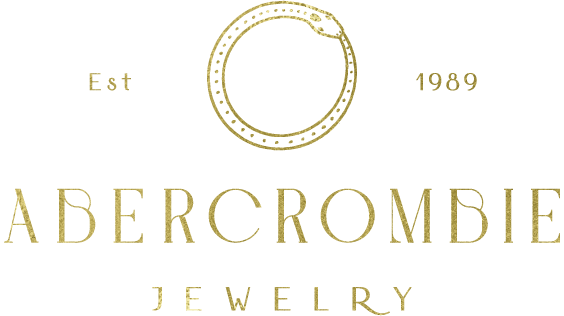Diamonds have long been admired for their beauty, durability, and rarity, making them a sought-after gemstone in various cultures and societies. However, determining the resale value of a diamond can be a complex task, as it depends on several crucial factors that influence its worth in the market.
In this article, we will explore the key elements that affect the value of a 1-carat diamond in resale, shedding light on the valuable aspects that determine its price.
The 4Cs of Diamond Grading
The 4Cs are universally recognized as the fundamental criteria for evaluating a diamond’s quality and, subsequently, its value. Let’s delve into each of these factors:
- Carat Weight: Carat weight refers to the size of the diamond and is often the first characteristic people consider when assessing its value. A 1-carat diamond weighs 200 milligrams. Generally, higher carat weight is more valuable. Other factors must be taken into account.
- Cut: The cut of a diamond determines how well it reflects light, showcasing its brilliance and fire. A well-cut diamond will have excellent proportions and symmetry, maximizing its visual appeal. A superior cut can significantly enhance a diamond’s value, even if its carat weight is slightly lower.
- Color: Diamond color is graded on a scale from D (colorless) to Z (light yellow or brown). The closer a diamond is to being colorless, the more valuable it tends to be. However, there are exceptions, such as fancy-colored diamonds, which have unique value parameters.
- Clarity: Clarity assesses the presence of internal or external flaws, referred to as inclusions and blemishes, respectively. Diamonds with fewer and less noticeable imperfections receive higher clarity grades and are typically more valuable. However, diamonds with minor inclusions that are invisible to the naked eye can still be considered of good value.
Certification
A certified diamond holds more significant value in the resale market. Reputable gemological laboratories, such as the Gemological Institute of America (GIA) or the American Gem Society (AGS), grade diamonds based on the 4Cs and issue certificates that authenticate their quality.
These certificates give buyers confidence in the diamond’s characteristics, enhancing its value and facilitating a fair resale transaction.
Market Demand and Trends
Diamond prices are also influenced by market demand and trends. The resale value of a 1-carat diamond can fluctuate depending on factors such as current fashion preferences, economic conditions, and shifts in consumer demand. Therefore, staying informed about the diamond market can help sellers decide when to sell their diamonds.
Brand Reputation
Diamonds from renowned and respected brands, such as Tiffany & Co., Cartier, or Harry Winston, often carry higher resale value due to their brand reputation and prestige. The brand’s legacy, craftsmanship, and desirability contribute to the diamond’s value, making it an essential consideration for potential buyers.
Conclusion
Determining the resale value of a 1-carat diamond involves a comprehensive evaluation of various factors. The 4Cs of diamond grading, certification from reputable gemological laboratories, market demand and trends, and brand reputation all play significant roles in determining the worth of a diamond in the resale market.
By considering these valuable aspects, sellers can gain a deeper understanding of their diamond’s value and make informed decisions when entering the diamond resale market.
Frequently Asked Questions
Q: What is the average resale value of a 1-carat diamond?
A: The resale value of a 1-carat diamond could vary widely depending on factors such as the diamond’s quality, market demand, and current trends. It is best to consult with a trusted jeweler or diamond expert to assess the diamond’s worth accurately.
Q: Can the resale value of a 1-carat diamond be higher than its original purchase price?
A: It is possible for the resale value of a 1-carat diamond to be higher than its original purchase price, especially if the diamond has appreciated due to factors such as market trends or rarity. However, it is essential to note that diamonds are not guaranteed investments, and their value can fluctuate.
Q: How does the cut of a 1-carat diamond affect its resale value?
A: The cut of a 1-carat diamond can significantly impact its resale value. A well-cut diamond with excellent proportions and symmetry will exhibit exceptional brilliance and fire, making it more desirable and valuable in the resale market.
Q: Is diamond certification necessary for determining the resale value of a 1-carat diamond?
A: Yes, diamond certification is essential for determining the resale value of a 1-carat diamond. A diamond certificate from a reputable gemological laboratory, such as the GIA or AGS, objectively assesses the diamond’s quality and authenticity, giving buyers confidence and adding value to the diamond.
Q: How does the brand reputation of a diamond affect its resale value?
A: The brand reputation of a diamond can impact its resale value. Diamonds from renowned and respected brands often carry higher resale value due to their association with quality, craftsmanship, and desirability. Brand recognition and prestige can influence buyers’ willingness to pay a premium for a diamond.
Q: Can the resale value of a 1-carat diamond increase over time?
A: The resale value of a 1-carat diamond can increase over time, depending on various factors such as market demand, rarity, and appreciation in value. However, it is essential to note that not all diamonds will experience appreciation, and market conditions can also cause fluctuations in value.
Q: Should I sell my 1-carat diamond to a jeweler or through a private sale?
A: The choice between selling your 1-carat diamond to a jeweler or through a private sale depends on convenience, potential resale value, and personal preferences. It is recommended to consult with multiple sources and obtain professional evaluations before deciding on the best-selling method for your diamond.
Please note that the answers provided here are general, and it is always advisable to seek guidance from reputable jewelers or diamond experts for personalized advice regarding the specific details of your diamond.
